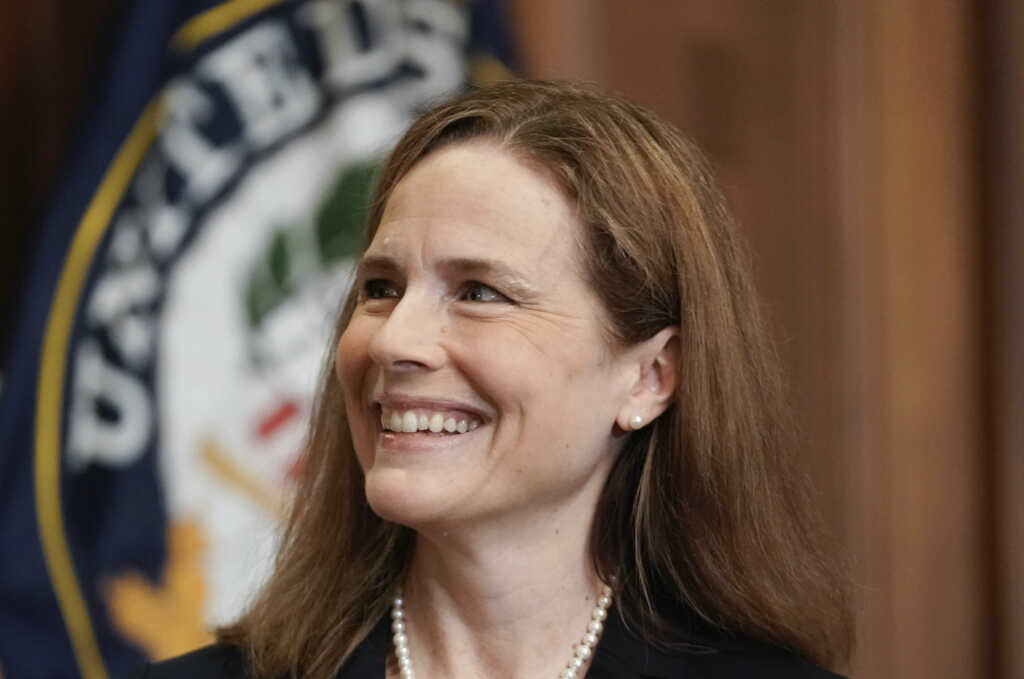A writer for Vanity Fair is claiming — based on no evidence whatsoever — that Judge Amy Coney Barrett, if confirmed to the Supreme Court, would potentially rule in favor of allowing for the execution of women who have abortions.
Bess Levin wrote last week that Barrett’s decision to avoid answering hypothetical questions was a “schtick.” Of course, Barrett was doing the exact same thing done by Supreme Court Justice Elena Kagan, who was nominated by former President Barack Obama, and the late Justice Ruth Bader Ginsburg, nominated by former President Bill Clinton.
In 2010, during Kagan’s Senate confirmation hearings, The New York Times ran the headline, “Kagan Follows Precedent by Offering Few Opinions,” referring to Ginsburg’s famous decision in 1993 to offer “no hints, no forecasts, no previews” on how she would rule as a justice. The Times ran this headline, though, when Barrett followed the so-called “Ginsburg rule”: “Barrett’s Testimony Is a Deft Mix of Expertise and Evasion.”
The crux of Levin’s baseless claim centered on a written exchange between Barrett, who is Catholic and personally pro-life, and Sen. Sheldon Whitehouse (D-R.I.), who asked the judge, “Under an originalist theory of interpretation, would there be any constitutional problem with a state making abortion a capital crime, thus subjecting women who get abortions to the death penalty?”
In her response, Barrett told the senator to “see my answer to question 100,” which was, “As a sitting judge and as a judicial nominee, it would not be appropriate for me to offer an opinion on abstract legal issues or hypotheticals.”
To make her case, Levin used (what she sees as) incriminating past opinions by Barrett, who is expected to be confirmed Monday evening.
Barrett wrote in one court opinion that abortion is “always immoral.” She also joined the dissenters in Box v. Planned Parenthood who argued an Indiana law requiring doctors to notify the parents of minors seeking abortions should be upheld. And as several Democrats noted, in 2006, the then-law professor signed a letter calling for an end to the “barbaric” Roe v. Wade, the landmark 1973 Supreme Court ruling that granted nationwide legal cover to abortion.
It should be noted, as Barrett explained, she only signed onto the portion of the letter opposing “abortion on demand.”
Barrett repeatedly told lawmakers she has “no agenda” going into the high court and refused — on numerous occasions — to offer them ideological pledges on any issue.
“It would actually be wrong and in violation of the canons for me to [take a side] as a sitting judge,” she explained to Sen. Dianne Feinstein (D-Calif.), who wanted Barrett to take a stance on Roe v. Wade. “So if I express a view on a precedent one way or another, whether I say ‘I love it’ or ‘I hate it,’ it signals to litigants that I might tilt one way or the other in a pending case.”
Feinstein called Barrett’s answer — the same response voiced by Ginsburg and Kagan — “distressing.”



